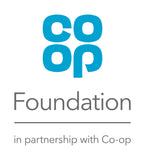Our Ethical & Sustainability Policy and Our Community...
ETHICAL & SUSTAINABILITY POLICY
In support of our co-workers, which may include directors, trustees, staff, volunteers, crew, students,
AND all the environments we live, stay or work in,
we make the following pledges:
-
The purpose of our work, which may be part of a bigger cooperation with other individuals, businesses, or regulators, is to address key challenges that affect us all on a planetary scale, to improve the landscapes we live and work in, with zero or minimal impact to our surroundings
-
Our ambitions from our work that we must do, are to provide ethical and viable business models that support the cost of living and provide essential resources for the growing population, while treading very lightly when it comes to impacts on the natural environment, to recycle or repurpose whenever possible, and to have respect for future generations,
- Our targets are to leave more than we take, to reduce unnecessary waste, and reduce or remove our carbon emissions
- We will monitor, govern, check, and report our work as best we can, and publish our findings online and social media
Our Community...
This project has already been 'part funded' through the Fal Fishery Cooperative CIC, by the Carbon Innovation Fund 2022, a partnership between the Co-op Foundation and Co-op...
Cornwall's first Canning Company since Newlyn in the 1970-80s, and the 'Fish Canning Factory' in Mevagissey in the 1940's
The Cornish Canning Co was incorporated in 2022 following over a decade of planning and research by oysterman Chris 'Ranger'. Nowhere in the UK would process and manufacture his perishable shellfish, including oysters, mussels and queen scallops, so he presented his idea to The Co-op Foundation via the CIC he set up.
The Fal Fishery Cooperative CIC is a unique 'community interest company' that was incorporated in 2019, its aims are to "Develop concepts and projects that support, enhance and protect one of Cornwall's oldest and most iconic heritage food industries - Cornish Native 'Fal Oysters' are harvested by hand, sail & oar and have a UK Designation of Origin Protected Food Name - but while the CIC aims to protect the habitat and the species (see SavingESTER Pt1 & Pt2), we need to enhance our routes to market in a carbon free way, which in turn will support our heritage and our community, for centuries to come" says Ranger.
The CIC successfully applied to the 'Carbon Innovation Fund' and part of the application was to develop the Cornish Canning Co project. This included some small upgrades to an already '5 Hygiene Rated' kitchen - for product development, a solar and wind energy system - for carbon free processing and manufacturing, as well as a can seaming machine - for irregular 'sardine style' tins.
However, what we did not apply for was the further upgrades to the electrics in the kitchen, nor the minimum printed can run (that turned out not to be 1,000 but 27,000!), nor the batch label printer required - as the minimum printed can run meant we needed a generic can that we could uniquely label with each recipe according to food law. Fortunately the Co-op Foundation have allowed us to 'temporarily' swap our fund allocation so we could order the printed cans, which when sold would replace the swapped funds... There was also one essential piece of equipment that could not be chosen, until full training and accreditation in the 'safe production of heat preserved foods' (completed in November 2022), which is a 'retort' for sterilisation and pasteurisation.
We're still collecting donations
On the 31st January 2023 we'd raised £11,851 with 110 supporters in 62 days. But as some still just wish to donate, we're continuing to collect donations from supporters via Crowdfunder.

